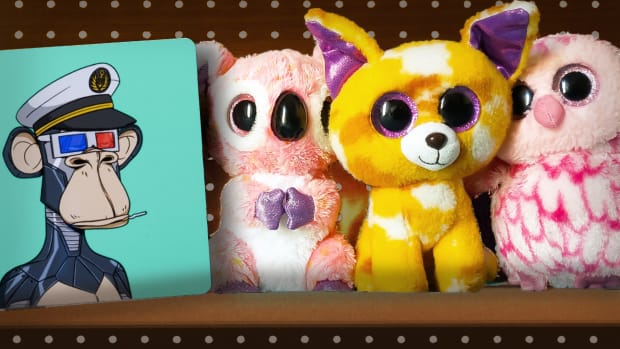Last October, Facebook Chief Executive Mark Zuckerberg told the world that the social media giant was going to be rebranded and reborn as Meta Platforms (FB).
"Today we are seen as a social media company but in our DNA we're a company that builds technology to connect people and the metaverse is the next frontier just like social networking was when we got started," Zuckerberg during his keynote address.
'An Interesting Place That We Can Play'
The transition has not been easy. Meta posted weaker-than-expected fourth quarter with the company forecasting that spending will close in on $100 billion this year while noting slower user growth rates and a pullback on advertising budgets.
Meta has lost over $500 since the name change and Zuckerberg's financial hit was big enough to get him kicked off of the top 10 list of the Bloomberg Billionaires Index.
Zuckerberg isn't slowing down, as evidence by his announcement Tuesday at the SXSW conference, that NFTs, or non-fungible tokens, will be coming to Instagram, Meta's picture and video sharing app.
"We’re working on bringing NFTs to Instagram in the near term,” Zuckerberg said, according to Fast Company. “I’m not ready to kind of announce exactly what that’s going to be today. But, over the next several months, the ability to bring some of your NFTs in, hopefully over time [you’ll] be able to mint things within that environment.”
Quick refresher course: NFTs are certificates of unique ownership for a digital file - piece of code, image, GIF, video, object or even video game character.
Instagram CEO Adam Mosseri said in a video posted on the app in December that "we are definitely actively exploring NFTs and how we can make them more accessible to a wider audience."
"I think it’s an interesting place that we can play…and also a way to hopefully help creators,” he said.

Shutterstock/TheStreet
In January, the Financial Times reported that Meta Platforms was considering the possibility of letting users create, sell and exhibit NFTs on Facebook and Instagram.
The NFT market has proven to be lucrative. Last year NFTs reached a value of $41 billion, according blockchain data company Chainalysis.
The company's last blockchain effort was a bit rocky. Meta attempted to enter the blockchain payments space in 2019 with its Libra initiative, backed by big players such as credit card issuers.
But the crypto project quickly ran into regulatory headwinds and many significant participants, such as credit card issuers dropped out.
'Ready for Minting!'
In December 2020, the company rebranded Libra to Diem, which means "day" in Latin, but that didn't help much.
Earlier this year, Facebook sold its technology assets that were part of the proposed virtual currency unit Diem Association to San Diego-based bank Silvergate for $200 million.
NFTs have become somewhat controversial recently.
NFTs are a bit of a sore point among many gamers, who say they have already seen experiments using new revenue models such as micro-transactions, loot boxes and pay-to-win done at the expense of the enjoyment of the gamer.
Players also criticize NFTs for their environmental impact as blockchains consume a lot of energy.
And reaction on social media for the most part seemed to be less than enthusiastic.
One person on Twitter posted a widely mocked photo of Zuckerberg windsurfing with his face completely covered in sunscreen.
"Ready for minting!"
"It's good to get nfts mainstream," one person said on Twitter. "But honestly I feel it'll reduce the value of NFTs. Everyone will start creating a project with no underlying utility or the founders mainly won't have much knowledge. Most people/ influencers will use it for easy cash grabs. Happy/Sad confused."
"There goes the neighborhood," another one said.
Another person tweeted, "Finally," and followed up with "But why aren't we creating a social media platform solely for NFT holders and the community?"
"It makes more sense and is the direction we should be moving," the person said.







